
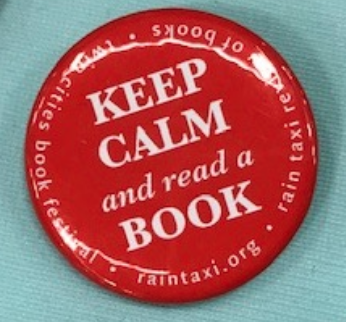
After attending for more years than I can count, in 2014 I swore off the annual conference of the Association of Writers and Writing Programs in lieu of fewer, more narrowly focused, and smaller writers conferences.* If you’re not familiar with it, AWP is huger than HUUUUGE, with an eye-addling and foot blister-inducing bookfair, plus endless panels, scads of receptions (free cheese cubes!), readings, and more readings, and even more readings. Finding friends at AWP oftentimes feels like trying to meet up at Grand Central Station at rush hour. Of the panels that appeal, dagnabbit, they somehow occupy the same time slot. Then try finding a table for an impromptu group of 13 on Friday at 7 PM! But sometimes, never mind, it all aligns beautifully and you can find friends and inspiration and new friends and all whatnot!
*For example, the American Literary Translators Association; Biographers International; Center for Big Bend Studies; Texas Institute of Letters; Women Writing the West.
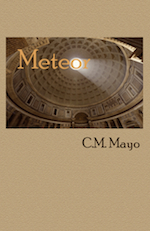
Never say never. What brought me back to AWP this last weekend in March of 2019 was to celebrate Gival Press’s 20th anniversary with a reading from my book Meteor, which won the Gival Press Poetry Award, and a booksigning at the Gival Press table in the bookfair. I also went to see friends and to scout out who’s publishing translations these days, since I have a couple of manuscripts of contemporary Mexican fiction that I’m aiming to place. Yet another reason was for a spritz of inspiration. (And I won’t go on about the lovely and fascinating city of Portland, since this is already a longish post.)
Think no one is reading books and literary magazines anymore? Here are just a few of the multitude of aisles of the 2019 AWP bookfair this year in Portland’s Oregon Convention Center:
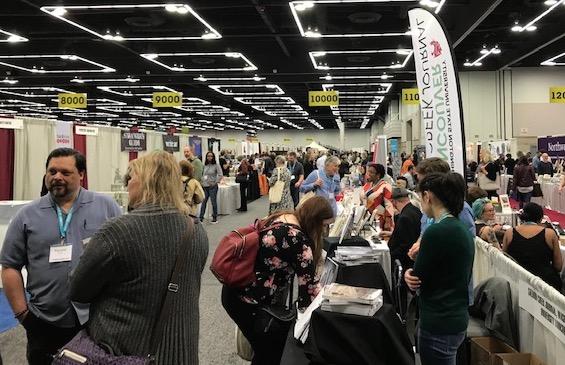

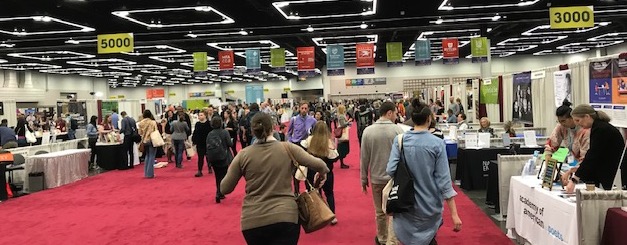
The above views are typical, in my experience from AWPs in Austin, Chicago, Palm Springs, New York City, Denver, Seattle… I’m sure I left one out… they all kinda meld together in my memories…
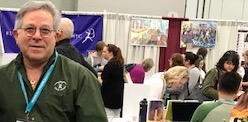
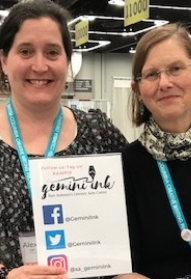
I spent most of my time at AWP this year in the bookfair. Among the shining highlights for me was finding Alexandra van de Kamp, one of my favorite poets, and a fellow literary editor and Spanish translator– we met at a book fair in New York City back when she was editing Terra Incognita and I, Tameme, and we’ve kept in touch for all these years. I think it’s been (ayy) 20. Alexandra now teaches poetry workshops at Gemini Ink, the literary arts center in San Antonio, Texas, where she also serves as Executive Director.
Here’s my favorite table in the bookfair, a cozy red tent constructed by Nicholas Adamski, poet and Chief Creative Officer of The Poetry Society of New York. We had a most excellently awesome conversation about typewriters.
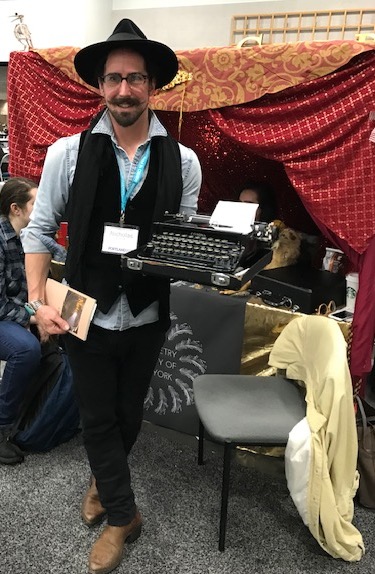
What I had not seen before at an AWP bookfair was this central platform for filming author interviews:
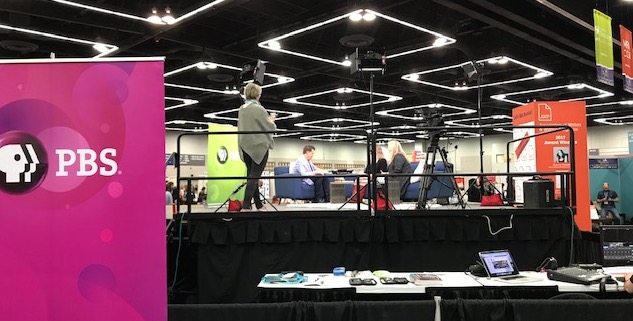
WHY ATTEND AWP?
It takes a pile of clams to attend AWP, plus travel costs, plus time– and that includes recovery time. Everyone has their own reasons for attending, and these might vary from year to year. I’ll speak for myself: In early years I attended AWP in order to promote my literary magazine, Tameme, and that meant standing at the table in the bookfair all day every day– which was fun, mostly, but exhausting (I developed an immense respect for vegetable sellers, I am not kidding). Later, after Tameme danced its jig over the litmag rainbow, I focused on participating on and attending panels as a writer (here’s one I did in for AWP on writers blogs in Seattle 2014; in previous years I participated on panels on writing travel memoir; writing across cultures; translating Mexican writers; and audio CDs– the latter on the eve of the advent of podcasting); exploring the bookfair (among other benefits, you can pitch editors sometimes, and sometimes it actually works); and meeting up with my editors, and with fellow poets and writers and translators. (The American Literary Translators Asociation, which has its own annual conference, also runs a mini-conference within the AWP conference. Ditto the Council of Literary Magazines and Presses, for which many editors and marketing staff attend.)
AWP is the MFA scene (Masters in Fine Arts in Writing). Most of the people attending seem to me to be students, graduates, or faculty of MFA programs. Those who are not, such as myself, are literary writers, poets, translators, and editors, and some staff of university-affliated conferences and independent nonprofit literary centers and organizations. While books and magazines are sold at AWP, this is not the commercial publishing scene. The publishers in the bookfair are for the most part university presses and university-associated literary magazines, and small independent presses and literary organizations. It’s not unheard of at AWP but extremely rare (as in albino antelope) to encounter an agent, or any commercial genre writing (romances, mystery, detective). You certainly won’t find much if anything in the way of the business books, commercial fiction, and celebrity tell-alls that are stock-in-trade for most bookstores.
OFF-SITERIE
A big draw for AWP is the delicious menu of off-site events, which are listed in the conference catalogue. The first night I arrived, I attended the readings by Leslie Pietrzyk from This Angel on My Chest, and Brad Felver, from The Dogs of Detroit, both winners of the University of Pittsburgh Press Drue Heinz Award for Short Fiction, at Mother Foucault’s Bookshop — a charming venue for two brilliant readings. Here’s my amiga Leslie:
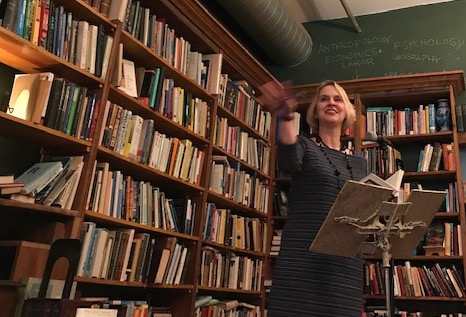
Another offsite event was the Gival Press 20th Anniversary Celebration at the Hotel Rose, in which I participated with a batch of poems from Meteor. (No photos of Yours Truly. Bad hair day.)
Here’s Thaddeus Rutkowski reading his poem, “White and Wong”:
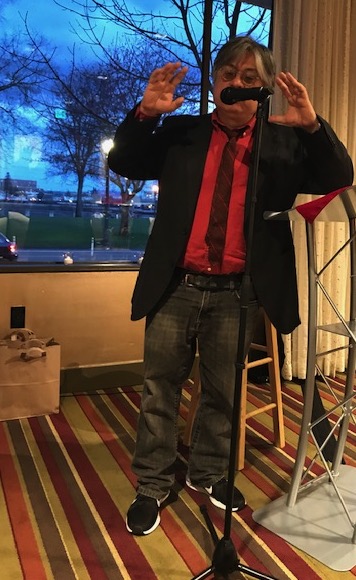
PANELS
Only two panels for me to attend this year. First, an homage to the late John Oliver Simon, a fine poet, translator, and teacher. (I published some his work in Tameme and the second Tameme chapbook, his translation of Mexican poet Jorge Fernández Granados’ Ghosts of the Blue Palace.) Here are the panelists with Simon’s portrait:
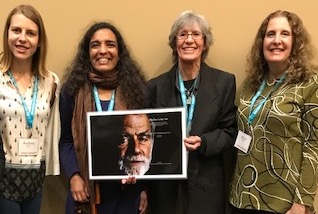
And here is my amigo novelist, short story writer, essayist, and literary activist Sergio Troncoso talking about “How to Overcome Discouragement and Use It as a Motivating Tool”:
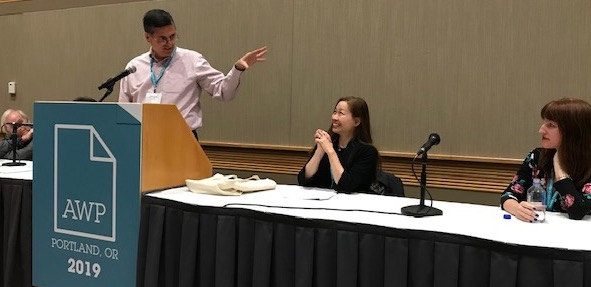
AT THE AWP BOOKFAIR
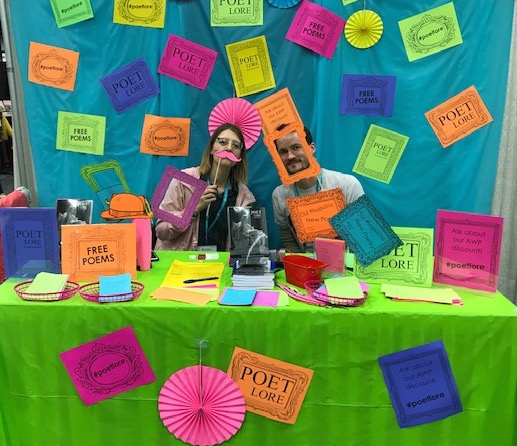
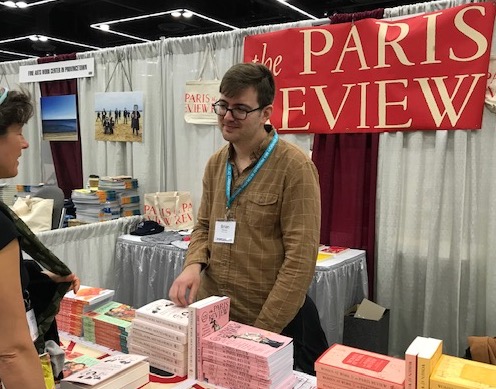
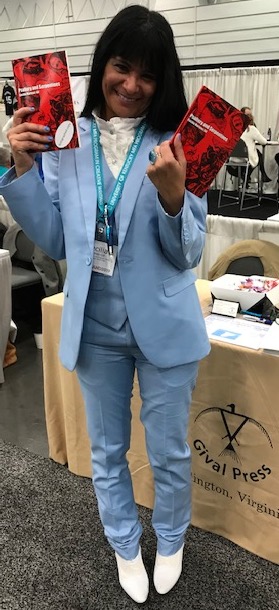
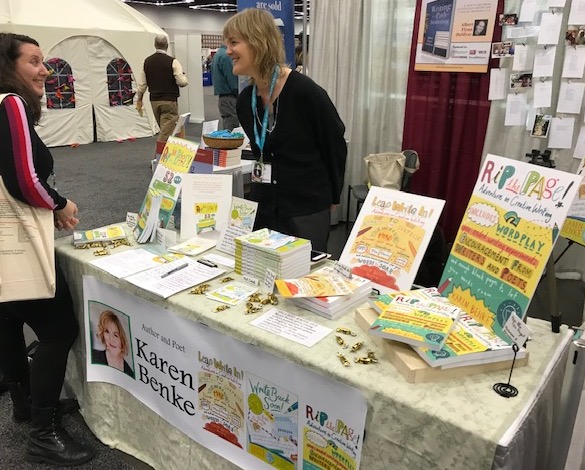
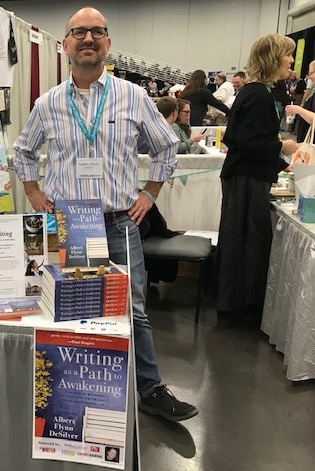
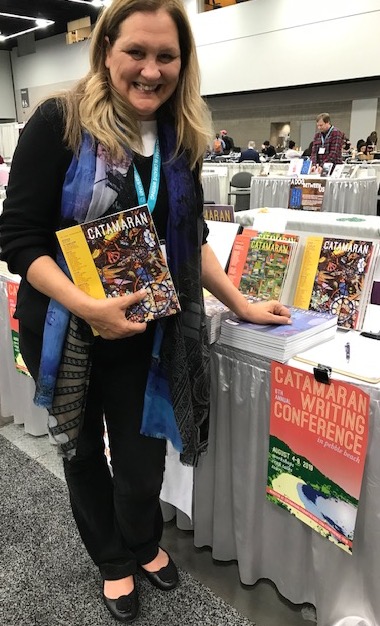
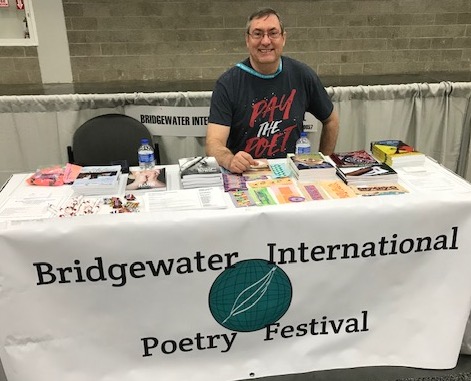
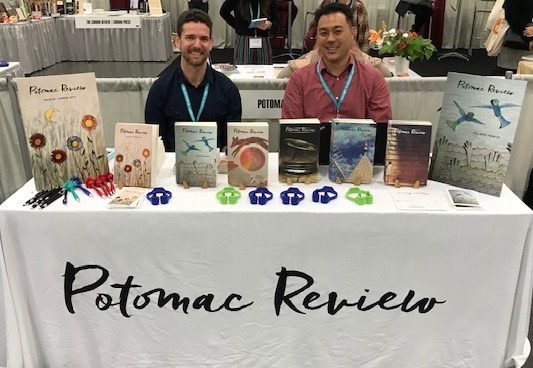
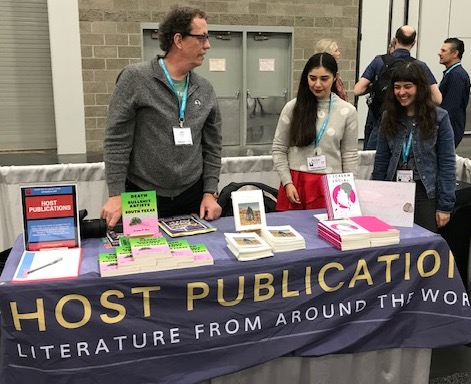
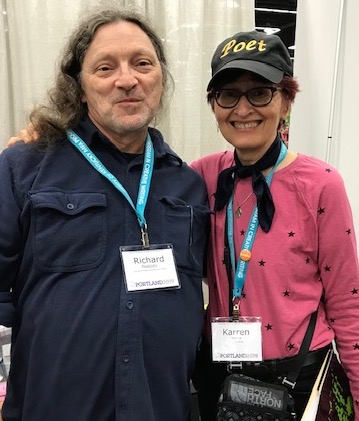
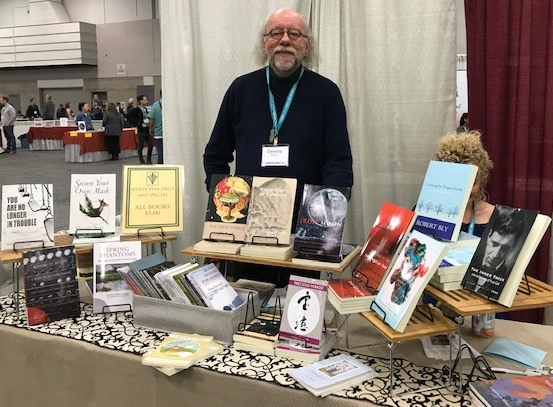
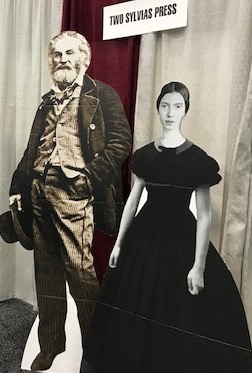
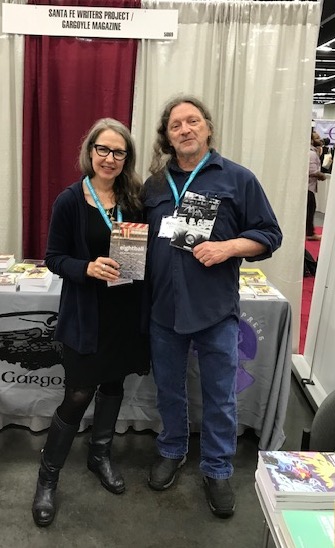
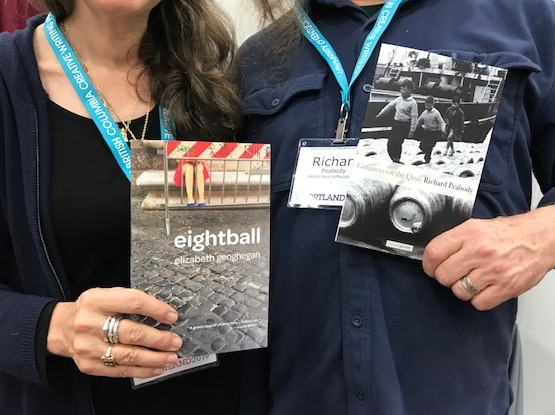
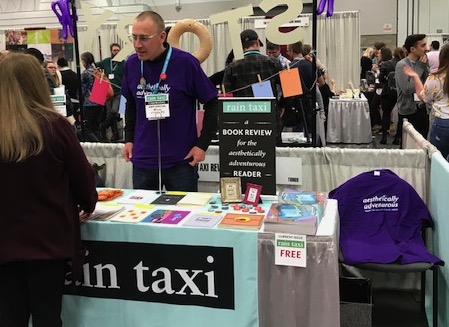
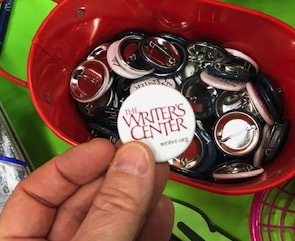
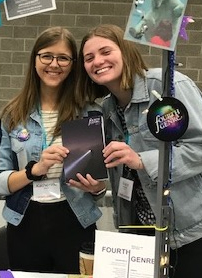
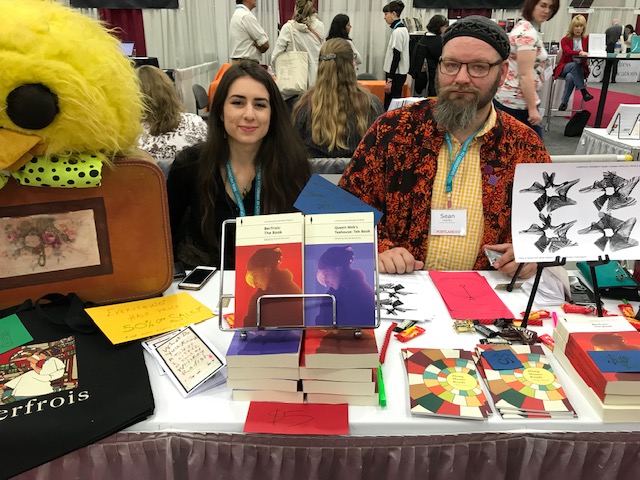
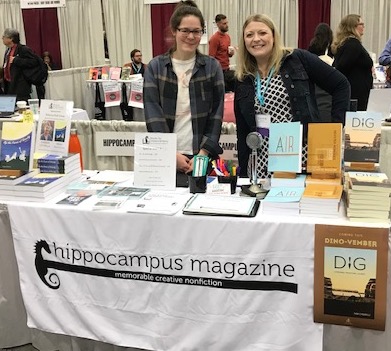
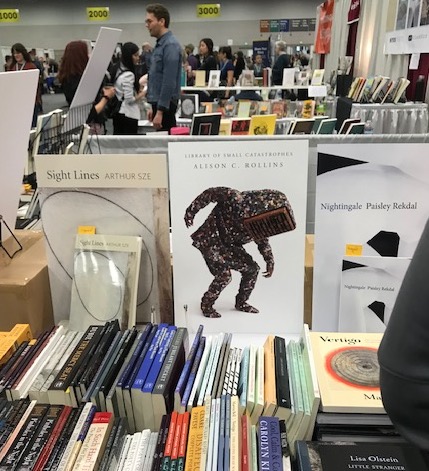
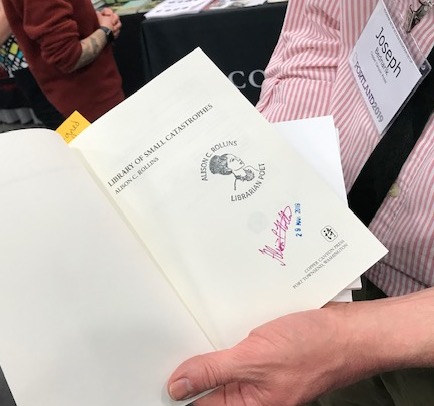
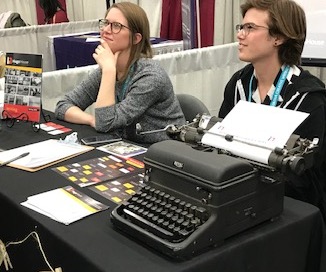
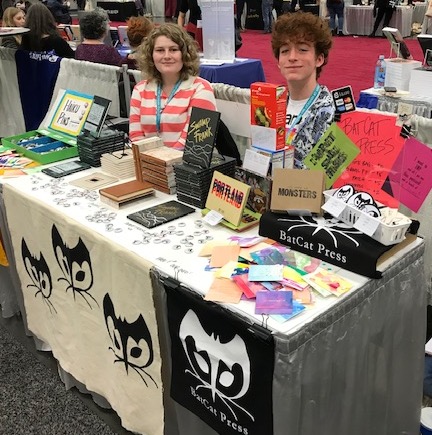
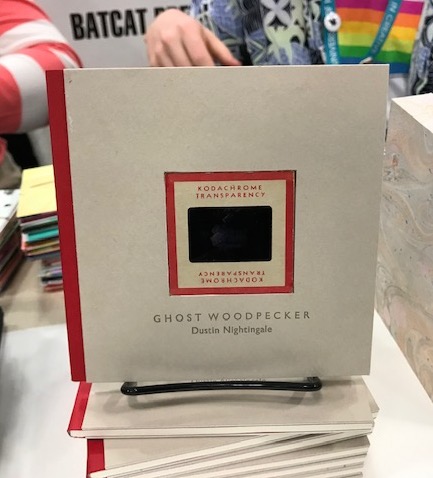
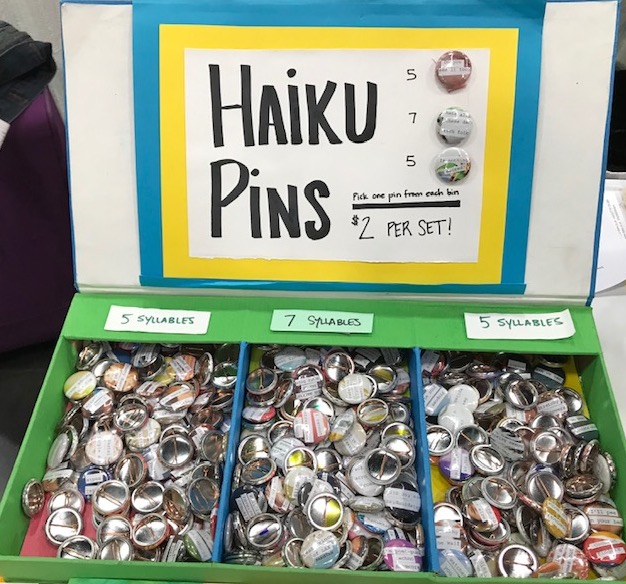
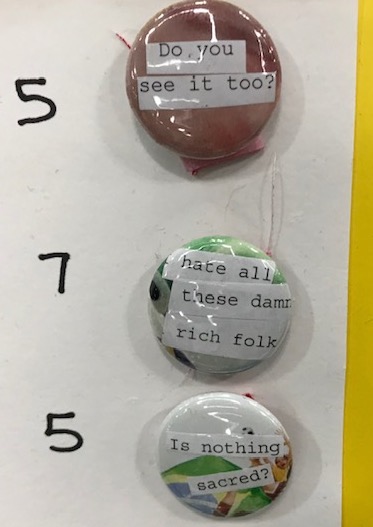
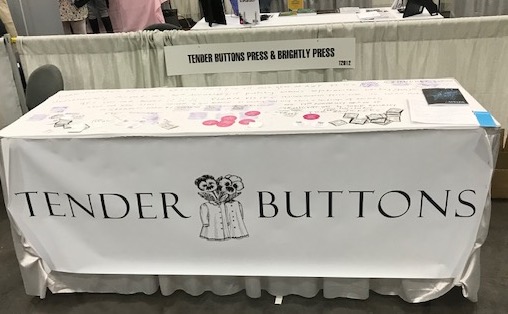
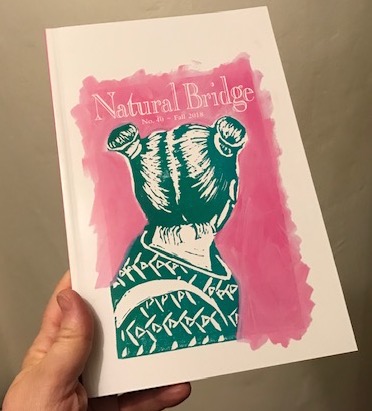
The Natural Bridge table was one of many that I missed visiting at the bookfair. Alas, ever and always, there are dear friends, fabulous events, and necessary bookfair tables that one ends up missing at such a hugely huger than huge conference. AWP is not for the FOMO-ly challenged.
UPDATE: Karren Alenier has a fascinating post about AWP 2019, from the point of view of a poetry publisher. If you’re at all interested in the literary magazine and small press poetry scene, this is a must-read.

“Silence” and “Poem” on the 1967 Hermes
Notes on Stephen L. Talbott’s The Future Does Not Compute
Find out more about C.M. Mayo’s books, shorter works, podcasts, and more at www.cmmayo.com.

